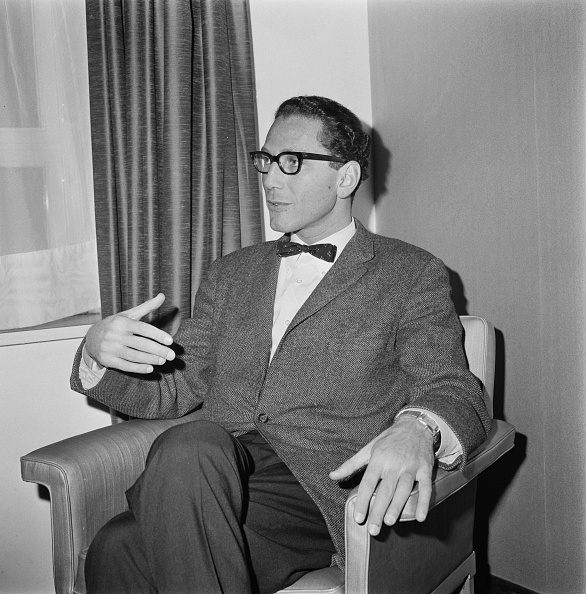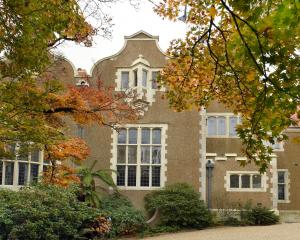
A mathematics and musical genius, Tom Lehrer excelled in both of his varied careers.
For most, the New York native’s satirical songs were what he was best known for. Although Lehrer’s body of work was actually quite small, amounting to about three dozen songs, many were instantly memorable.
Songs like Poisoning Pigeons in the Park and The Masochism Tango remain sharply funny classics of their kind and influenced generations of writers who followed in his footsteps.
But when the world appeared to be at his feet Lehrer largely quit touring and returned to teaching math, though he did some writing and performing on the side. He remained on the math faculty of the University of California at Santa Cruz well into his late 70s.
Lehrer was born in 1928, the son of a successful necktie designer. He recalled an idyllic childhood on Manhattan’s Upper West Side that included attending Broadway shows with his family and walking through Central Park day or night.
After skipping two grades in school, he entered Harvard at 15 and, after receiving his master’s degree, he spent several years unsuccessfully pursuing a doctorate.
"I spent many, many years satisfying all the requirements, as many years as possible, and I started on the thesis," he once said.
"But I just wanted to be a grad student, it’s a wonderful life. That’s what I wanted to be, and unfortunately, you can’t be a PhD and a grad student at the same time."
While at Harvard, Lehrer got into performing by accident: he had begun to compose songs in the early 1950s to amuse his friends, but their popularity meant he was soon performing them at local coffeehouses.
He cut his first record in 1953, Songs by Tom Lehrer, which included I Wanna Go Back to Dixie (lampooning the attitudes of the Old South) and Fight Fiercely, Harvard, suggesting how a prissy Harvard blueblood might sing a football fight song.
After a two-year stint in the army, Lehrer began to perform concerts of his material in venues around the world.
In 1959, he released another LP called More of Tom Lehrer and a live recording called An Evening Wasted with Tom Lehrer, nominated for a Grammy for best comedy performance (musical) in 1960.

What that gentleman would have made of The Masochism Tango ("Let our love be a flame, not an ember / Say it’s me that you want to dismember") — a brisk invitation for a ballroom battering which ends with the singer begging "Fracture my spine and swear that you’re mine" — is anyone’s guess.
Accompanying himself on piano, he performed the songs in a colourful style reminiscent of such musical heroes as Gilbert and Sullivan and Stephen Sondheim, the latter a lifelong friend.
Lehrer was often likened to such contemporaries as Allen Sherman and Stan Freberg for his comic riffs on culture and politics and was cited by Randy Newman and "Weird Al" Yankovic among others as an influence.
He mocked the forms of music he didn’t like (modern folk songs, rock’n’ roll and modern jazz), laughed at the threat of nuclear annihilation and denounced discrimination, but he attacked in such an erudite, even polite, manner that almost no-one objected.
Lehrer said he was never comfortable appearing in public: "I enjoyed it up to a point, but to me, going out and performing the concert every night when it was all available on record would be like a novelist going out and reading his novel every night."
In 1964 Lehrer produced a political satire song each week for the US version of the British television show That Was the Week That Was, songs released on his fourth and final live album a year later.
Although then largely retreating from music, in the 1970s Lehrer wrote songs for the 1970s educational children’s show The Electric Company — he once said that hearing from people who had benefited from them gave him far more satisfaction than praise for any of his satirical works.
His songs were revived in the 1980 musical revue Tomfoolery, and he made a rare public appearance in London in 1998 at a celebration honouring the musical’s producer, Cameron Mackintosh.
Lehrer’s main focus though was teaching math, at Harvard, the Massachusetts Institute of Technology and other universities. From time to time, he acknowledged, a student would enrol in one of his classes based on knowledge of his songs.
"But it’s a real math class. I don’t do any funny theorems. So those people go away pretty quickly."
In 2020 Lehrer abandoned the copyrights on his songs, placing all of them in the public domain for use without fee.
"Help yourselves, and don’t send me any money," he said on his website.
Tom Lehrer, who never married and had no children, died on July 26 aged 97. — AP/Allied Media











